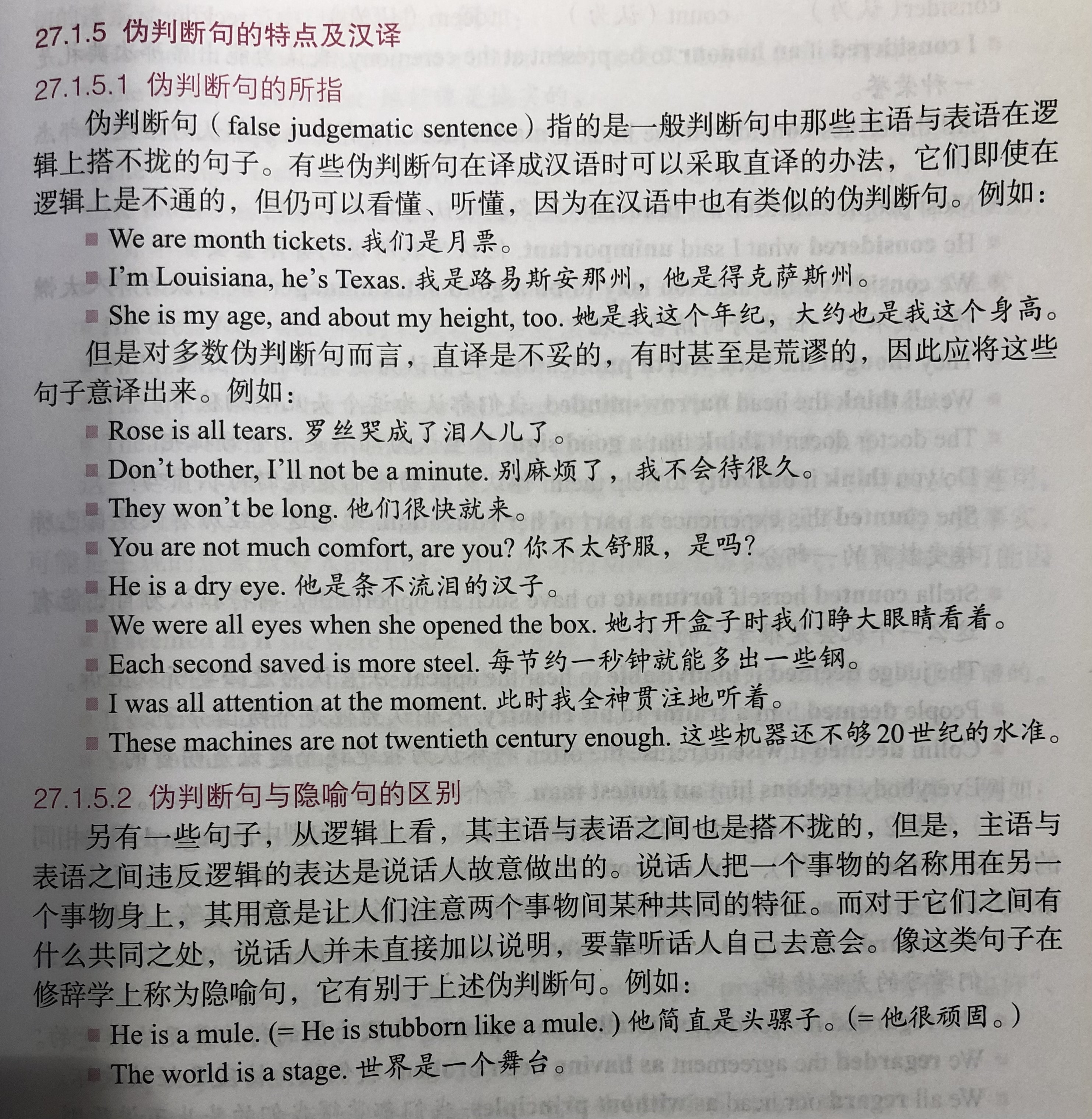3 If food waste were a country...的说法合逻辑吗
If food waste were a country,
it would be the third largest producer of greenhouse gases in the world.
句子来自2022年高考英语新全国卷的阅读理解题,相关段落如下:
Producing food that no one eats wastes the water, fuel, and other resources used to grow it. That makes food waste an environmental problem. In fact, Royte writes, “if food waste were a country, it would be the third largest producer of greenhouse gases in the world.”
我觉得这个句子不符合逻辑,因为我们不能“食物浪费”是“一个国家”吧!
其它 2 个回答
我觉得可以将这个句子看作伪判断句(false judgematic sentence)。抱歉,我在谷歌没搜到这个术语。该术语出自杨元兴编写的《新编英语句型句法全解》第 289 页(照本宣科走起):

这种主系表句子,除了要和截图中的隐喻句区别,还要和转喻句相区别。
这类句子,可以通过上下文把握句意。就题主这句,试译:如果整个国家都浪费食物,则这个国家就是世界第三大温室气体制造者。当然这种情况是不可能的,所以原句用了虚拟语气。
以下例句均来自外媒:
伪判断句:
In this case the problem is Italy.
Ukraine is a refugee crisis in the making for Poland.
转喻句:
The venue was the Conservative Political Action Conference (CPAC), an annual gathering of activists that once sat at the far right of Republican thought, but now appears to be its centre.
用 venue 地点指召开的会议
In America a firm called World Energy employs a former oil refinery in Paramount, California, to do something similar. Paramount was, indeed, the first plant to make saf commercially, having been converted to do so in 2016 by Bryan Sherbacow, a green entrepreneur.
用地点 Paramount 指 World Energy 公司。类似的转喻,白宫指美国政府,北京指中国政府,不一而足。
- 4 关注
- 2 收藏,4131 浏览
- 江小花 提出于 2022-09-05 19:58
相似问题
-
 《高考英语备考1号·速效编》
《高考英语备考1号·速效编》
-
 《高考英语备考1号·写作编》
《高考英语备考1号·写作编》
-
 《高中英语晨读晚记》
《高中英语晨读晚记》
-
 《高中英语错题笔记》
《高中英语错题笔记》
-
 《零起点考大学英语》
《零起点考大学英语》
-

